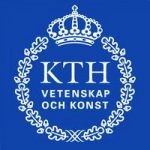项目介绍
The European Research Council-funded Advanced Grant ‘Deep Culture – Living with Difference in the Age of Deep Learning’ invites applications for a PhD position to research the intersections between deep learning and cultured. Collaborating with two other PhD students,two PostDocs and a team of other PhD students, the aim is to realise an ambitious interdisciplinary research agenda conceptualizing, analysing and transforming the relations between deep learning and culture. The project involves experts from the Institute for Logic, Language, and Computation (ILLC), the Amsterdam School for Cultural Analysis (ASCA), and the Amsterdam School for Heritage, Memory, and Material Culture (AHM). Your research will be part of the AI in Culture and Society group of the ILLC and the Critical Data and AI group at Media Studies. We are looking for a talented, ambitious PhD candidate who can combine independent research with team collaboration. You will have the opportunity to explore exciting questions of digital culture, archival collections, and deep learning. You willcontribute to shaping debates about our relations with AI technologies.
This is what you will be doing
The PhD student will be part of a 5-year European Research Council Advanced grant: ‘Deep Culture – Living with Difference in the Age of Deep Learning’. They will also collaborate with other PhD students working on AI methodologies for cultural-historical research. The ‘Deep Culture’ project investigates the relations between deep learning and global cultural production and consumption. Deep-learning technologies like ChatGPT have generated a lot of excitement about our new relations with AI but have also provoked much public anxiety. The effects on cultural production, creativity as well as the use of cultural archives to feed models have been key concerns. The project coins ‘deep culture’ to describe the global transformations that deep learning has brought on culture, and how culture is, in turn, key to deep learning.
This PhD will focus on questions of historical archives and deep learning. We are interested in specific historical archives that like the Holocaust archives are controversial for their relationships to deep learning models. There are many historical archives that bring together very large data, both textual and multimedia, but their online publication and integration in further processing has often led to widely publicized controversies as in the example of the Dutch online archives of Nazi collaborators. The ingestion of archives like historical medical archives have led to gendered and racialized health recommendations by language models, while Holocaust archives have been targeted by online misrepresentations and Holocaust denial in language and image models. Deep-learning models must first pass the ‘Nazi test’ and have safeguards against Holocaust denial, producing curated answers for anything its creators see as ethically complicated.
We envisage that the applicant will have a range of diverse skills that complement each other. While firmly grounded in knowledge in AI, digital methods and digital humanities he/she should also be open to qualitative methods and historical-cultural analysis. We expect that you are willing to critically engage with interdisciplinary approaches and methodologies, learn from each other in the team and add new skills and practices to your existing interests. The project wants to avoid hierarchies and specialisations as far as possible.
This is what we ask of you
You are expected:
- to conduct research drawing on approaches from deep learning, digital methods and digital humanities;
- to publish and present research results in leading international conferences and journals;
- to complete a PhD thesis to be submitted within the period of appointment;
- to participate in project meetings and relevant networks;
- to participate in knowledge dissemination activities with academic and other stakeholders;
- to contribute to our teaching activities as assistant to courses and/or guiding students in their thesis work
- to contribute to the organisational and administrative work on the project
This is what we offer
We offer a temporary employment contract for the period of 48 months. The first contract will be for 16 months, with an extension for the following 32 months, dependent on a positive performance evaluation within the first 12 months. The employment contract is for 38 hours a week. The preferred starting date is as soon as possible but ideally no later than 1 May 2025. The gross monthly salary, based on 38 hours per week and relevant experience, ranges from € 2,901 up to a maximum of € 3,707. This sum does not include the 8% holiday allowance and the 8,3% year-end allowance. A favourable tax agreement, the ‘30% ruling’, may apply to non-Dutch applicants. The Collective Labour Agreement of Dutch Universities is applicable. Apart from your salary and employee status (no tuition fees) and an inspiring research environment, we offer you many fringe benefits:
- 232 holiday hours per year (based on full time) and extra holidays between Christmas and 1 January;
- multiple courses to follow from our Teaching and Learning Centre;
- a complete educational program for PhD students, including those offered by the Dutch National Research Schools;
- multiple courses on topics such as time management, handling stress and an online learning platform with 100+ different courses;
- 7 weeks birth leave (partner leave) with 100% salary;
- partly paid parental leave;
- the possibility to set up a workplace at home;
- a pension at ABP for which UvA pays two third part of the contribution;
- the possibility to follow courses to learn Dutch;
- help with housing for a studio or small apartment when you’re moving from abroad.
联系方式
电话: +31 (0)20 525 1400相关项目推荐
KD博士实时收录全球顶尖院校的博士项目,总有一个项目等着你!






